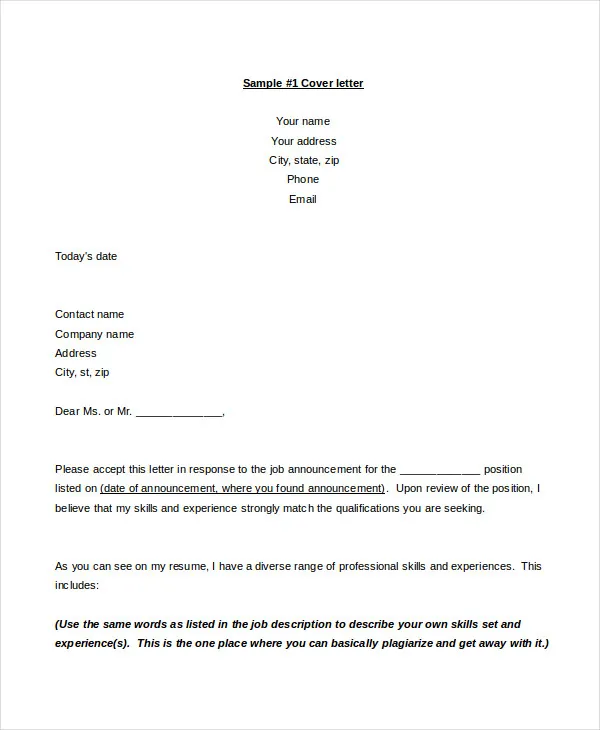Why a Cover Letter Matters
In today’s competitive job market, a well-crafted cover letter can be the key to unlocking your dream job. A cover letter serves as your first introduction to a potential employer, offering a glimpse into your personality, passion, and qualifications beyond what’s presented in your resume. It’s an opportunity to make a strong first impression and persuade the hiring manager to delve deeper into your application. While your resume provides a factual overview of your experience and skills, the cover letter lets you elaborate on your achievements, explain your career goals, and highlight your suitability for the specific position. It allows you to demonstrate your communication skills and show that you’ve taken the time to understand the company and the role. Ignoring the cover letter is a missed opportunity to personalize your application and differentiate yourself from other candidates. By showcasing your unique value proposition and enthusiasm, you significantly increase your chances of securing an interview. A cover letter isn’t just a formality; it’s a crucial element of a successful job application.
Highlight Your Value Proposition
Your value proposition is the unique combination of skills, experiences, and qualities that you bring to the table. In your cover letter, you need to clearly articulate this value to the employer. Start by identifying what makes you stand out from other applicants. What specific skills do you possess that align with the job requirements? What achievements have you accomplished that demonstrate your capabilities? How does your past experience prepare you for success in this role? Don’t simply list your qualifications; instead, explain how they translate into tangible benefits for the company. For instance, instead of saying, “I have experience in project management,” you could say, “My experience in project management has resulted in successful project delivery, with a 15% reduction in costs and a 10% increase in efficiency.” Show the employer why you are the best fit for the position by showcasing your unique abilities and demonstrating your understanding of the company’s needs. Tailor your value proposition to align with the specific requirements of the job description to prove your suitability.
Tailoring Your Cover Letter
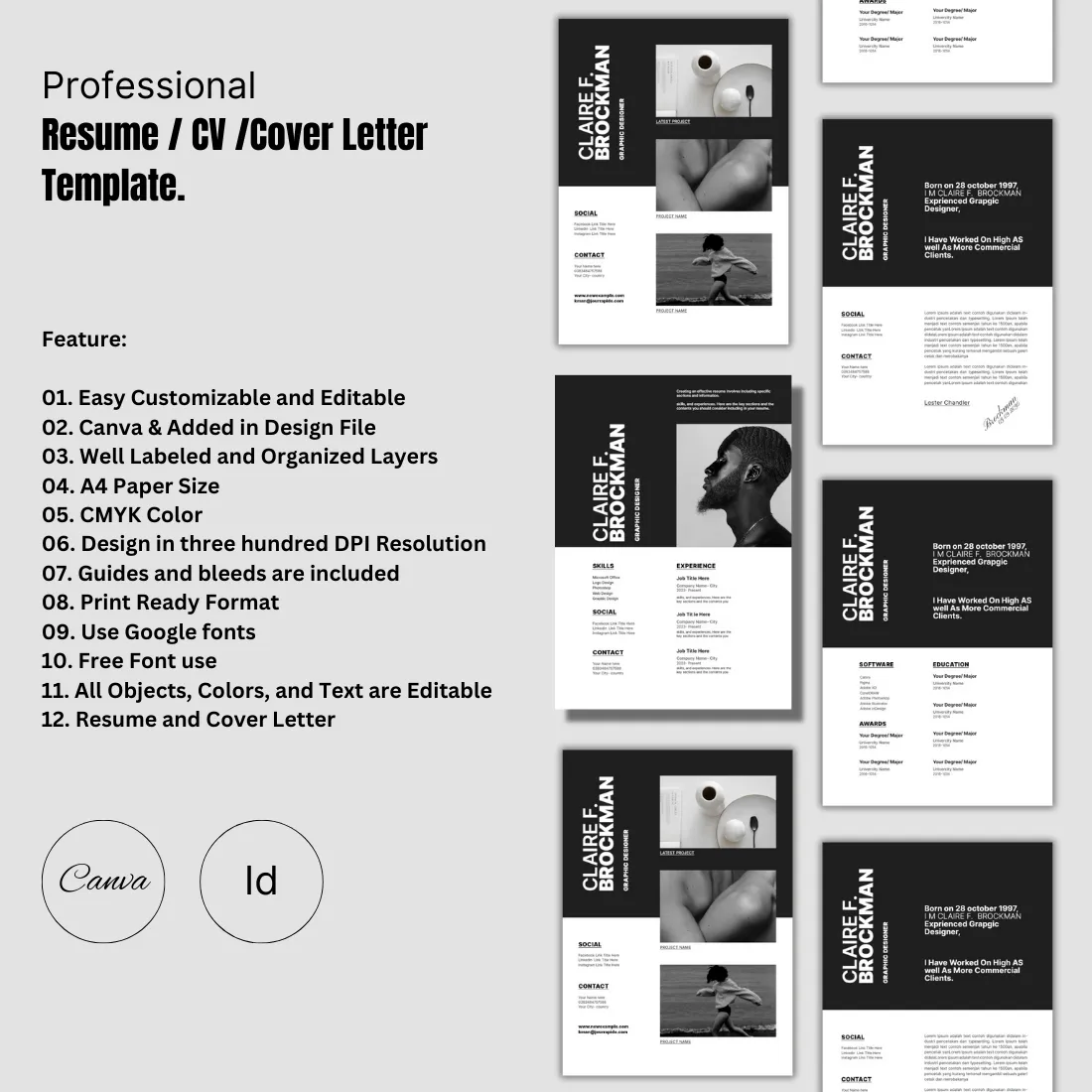
Generic cover letters rarely impress. To make your application stand out, you must tailor each cover letter to the specific job and company. Begin by carefully reviewing the job description to understand the required skills, experience, and qualifications. Identify the key requirements and use them to shape the content of your letter. Show the hiring manager that you’ve read the description and that you are a perfect fit. Avoid sending out a generic cover letter with only minor changes. Research the company thoroughly to demonstrate your genuine interest. Mention specific projects or accomplishments that align with the company’s goals and the job requirements. By referencing the company’s values, mission, or recent news, you show that you have done your homework and are serious about working for them. Demonstrate your attention to detail and commitment to the position. Proofread your tailored cover letter meticulously to ensure that it’s free of errors and reflects your professionalism and dedication. Tailoring your cover letter shows you care.
Research the Company and Position
Before writing your cover letter, research the company and the specific position you are applying for. This research is essential for tailoring your letter to the company’s needs and demonstrating your genuine interest. Visit the company’s website to learn about its mission, values, and recent news. Understand its products, services, target market, and competitive landscape. Explore the “About Us” section to gain insights into the company culture and philosophy. Next, carefully analyze the job description to fully understand the responsibilities, required skills, and qualifications. Look for keywords and phrases that highlight what the employer is seeking. Identify the specific problems the company is trying to solve or the goals it is trying to achieve. By understanding the company’s needs and the requirements of the position, you can effectively position yourself as the ideal candidate. This will make your cover letter more impactful. Show that you’re not just looking for a job; you’re genuinely interested in contributing to the company’s success. Demonstrate that you are a perfect fit.
Showcase Your Relevant Skills
Your cover letter is the perfect opportunity to showcase your relevant skills and how they align with the requirements of the job. Start by reviewing the job description to identify the skills the employer is seeking. Make a list of your own skills that match these requirements. Don’t just list these skills; provide specific examples of how you’ve used them in the past and how you’ve achieved positive results. Use action verbs to describe your accomplishments, such as “managed,” “developed,” “implemented,” or “led.” Quantify your achievements whenever possible to provide concrete evidence of your abilities. For example, instead of saying “Improved customer satisfaction,” you could say “Increased customer satisfaction by 20% through the implementation of a new feedback system.” By highlighting your relevant skills and providing specific examples, you demonstrate that you possess the necessary abilities to succeed in the role. Show the hiring manager how your skills will benefit the company, and make it clear that you are the right person for the job.
Quantify Your Achievements
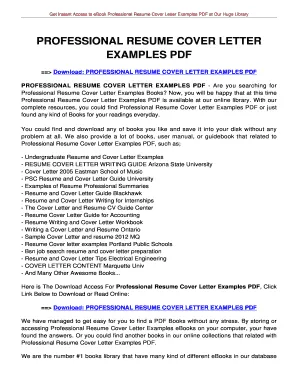
Numbers speak louder than words. To make your cover letter more impactful, quantify your achievements whenever possible. Rather than simply stating what you’ve done, provide specific data and metrics to demonstrate the impact of your work. For example, instead of saying “Increased sales,” you could say “Increased sales by 15% in Q4.” If you’ve managed a team, mention the size of the team and the results they achieved. If you’ve implemented a new process, include statistics on its success. If you’ve saved the company money, provide the amount. Quantifying your achievements adds credibility to your claims and provides concrete evidence of your abilities. It allows the hiring manager to easily understand the value you bring to the table. Use percentages, numbers, and statistics to provide concrete evidence of your capabilities. Use data to showcase the tangible results you’ve delivered in previous roles. When possible, provide specific examples of your work and the results you’ve achieved. This helps make your cover letter more persuasive and helps you stand out from the competition.
Format and Structure
A well-formatted and structured cover letter is essential for making a positive first impression. Use a professional and easy-to-read font, such as Arial or Times New Roman, in a size between 10 and 12 points. Ensure that your letter is well-organized, with clear sections and concise paragraphs. Start with your contact information, followed by the date, the hiring manager’s name (if available), and the company’s address. Then, write a compelling opening paragraph that grabs the reader’s attention and clearly states the purpose of your letter. In the body paragraphs, showcase your value proposition and explain why you are the best fit for the position. Use headings and subheadings to make your letter easy to scan. Keep paragraphs short and to the point. End with a strong closing paragraph that reiterates your interest in the position and encourages the hiring manager to contact you. Proofread your letter carefully for any errors in grammar or spelling before submitting it. A well-formatted and structured cover letter demonstrates your attention to detail and professionalism.
Write a Compelling Opening
Your opening paragraph is your first and most crucial opportunity to grab the reader’s attention and make a positive impression. The opening paragraph sets the tone for the rest of your letter and encourages the hiring manager to continue reading. Avoid generic openings like “I am writing to express my interest in the position.” Instead, write a compelling introduction that immediately captures the reader’s attention. Start with a statement that highlights your understanding of the company and the role. Clearly state the position you are applying for and how you learned about it. Consider mentioning a specific achievement or skill that aligns with the job requirements. Express your enthusiasm for the opportunity and state why you are a good fit for the company. Customize your opening paragraph to the specific job and company. If you’ve been referred by someone, mention that in your opening. The goal is to make the reader want to learn more about you. A well-crafted opening makes the hiring manager eager to read your letter.
Develop Strong Body Paragraphs
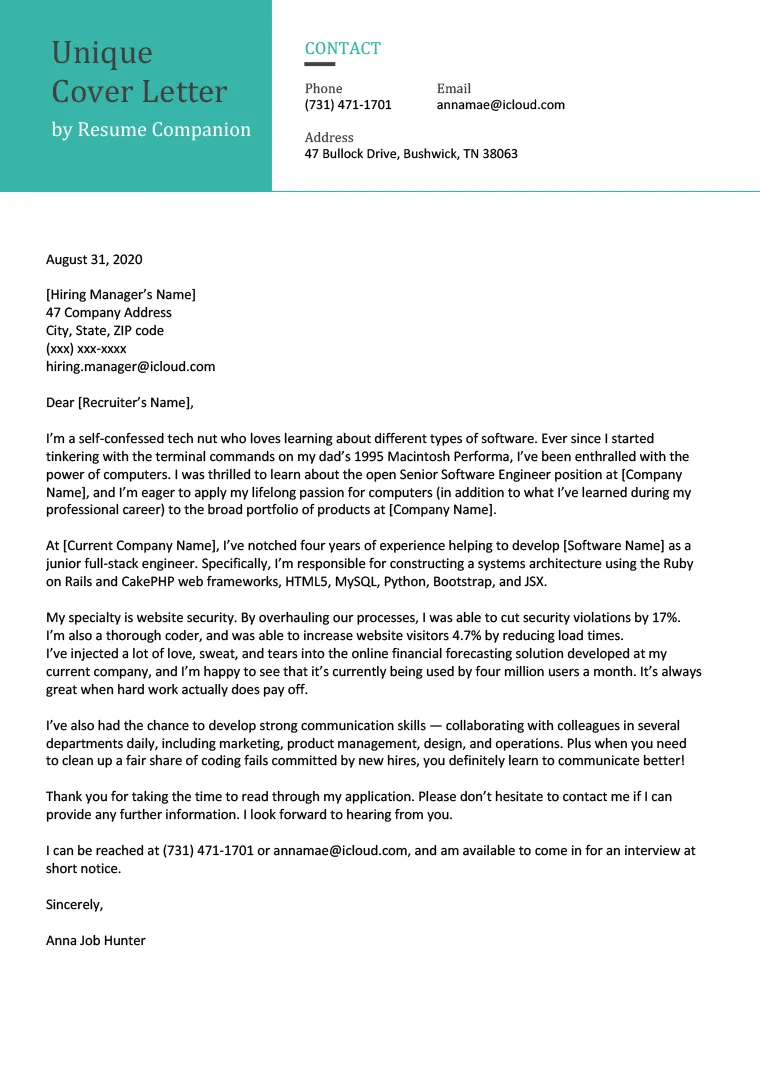
The body paragraphs of your cover letter are where you demonstrate your value proposition and explain why you are the best fit for the position. Each paragraph should focus on a specific aspect of your skills, experience, or qualifications. Begin each paragraph with a clear topic sentence that introduces the main point. Provide specific examples and evidence to support your claims. Use the STAR method (Situation, Task, Action, Result) to describe your accomplishments. In a Situation, describe the context. In a Task, explain what you needed to do. In Action, detail the steps you took. In Result, explain what the outcome was. Focus on achievements that align with the job requirements and highlight the results you delivered. Quantify your achievements whenever possible to provide concrete evidence of your impact. Tailor each paragraph to the specific job and company. Show how your skills and experiences align with the company’s goals and needs. Develop strong body paragraphs that prove your value and demonstrate why the company should hire you.
Craft an Effective Closing
The closing paragraph is your last opportunity to make a strong impression, so make it count. Reiterate your interest in the position and your enthusiasm for the opportunity. Summarize your key qualifications and highlight why you are a good fit for the company. Clearly state your availability for an interview and express your eagerness to discuss your application further. Thank the hiring manager for their time and consideration. Avoid using generic phrases such as “Thank you for your time.” Instead, express genuine gratitude. If possible, tailor your closing to the specific company or position. For example, you could mention a specific goal that you are excited to contribute to. End with a professional and confident closing, such as “Sincerely,” or “Best regards.” Make sure to include your contact information again to make it easy for the hiring manager to get in touch with you. An effective closing leaves a lasting positive impression.
Proofread and Edit
Proofreading and editing your cover letter is an essential step in the job application process. Your cover letter is a reflection of your professionalism and attention to detail. Errors in grammar, spelling, and punctuation can undermine your credibility and make a negative impression on the hiring manager. Carefully read through your cover letter multiple times, looking for any mistakes. Consider using a grammar checker to identify potential errors. Ask a friend, family member, or career counselor to review your letter. They may catch errors that you missed. Check for consistency in formatting, such as font, spacing, and margins. Ensure that your contact information is correct and up to date. Proofread your cover letter before sending it. A polished cover letter shows you’ve put the effort into your application.
What to Avoid in Your Cover Letter
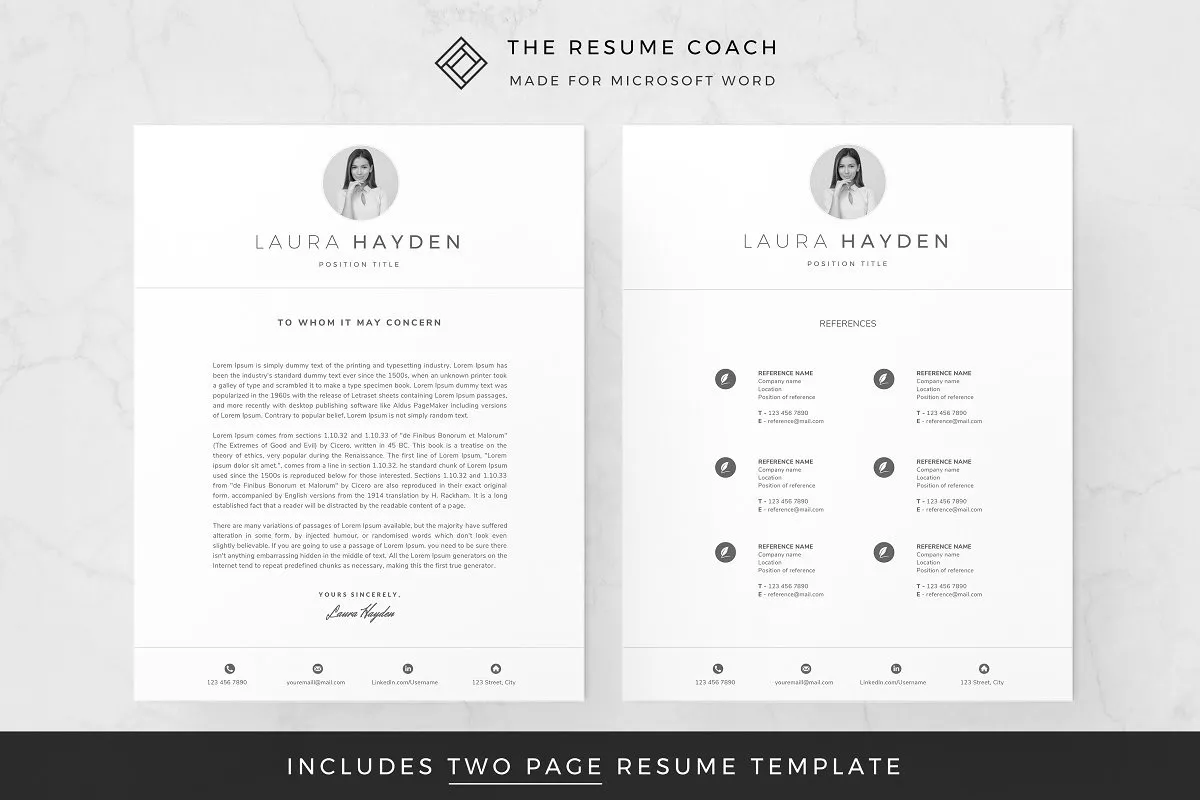
Avoid common mistakes that can hurt your chances of getting an interview. Your cover letter should be concise, professional, and tailored to the specific job and company. Generic templates often fail to impress. They signal a lack of effort and a lack of genuine interest in the position. Steer clear of typos and grammatical errors. Proofread your cover letter thoroughly before submitting it. Avoid irrelevant information. Focus on your skills, experience, and qualifications that are relevant to the job requirements. Don’t rehash your entire resume. The cover letter should complement your resume, not duplicate it. Refrain from using jargon, clichés, and overly casual language. Write in a clear, concise, and professional tone. Do not include negative comments about previous employers or colleagues. Focus on your strengths and achievements. Following these guidelines will help you to make a positive first impression.
Generic Templates
Generic cover letters are often easily identifiable by hiring managers, who receive countless applications. Using a generic cover letter signals a lack of effort and a lack of genuine interest in the specific position and company. Tailoring is key to success. Generic cover letters are unlikely to grab the reader’s attention. Instead of using a generic template, create a unique cover letter for each job you apply for. Research the company and the specific role to understand their needs and requirements. Customize your cover letter to align with the job description and highlight your relevant skills and experience. Show that you have taken the time to understand the company’s mission, values, and goals. The more personalized and tailored your cover letter is, the better your chances of making a positive impression. Avoid generic templates. Take the time to write a cover letter that is tailored to the specific job and company, and your application will stand out from the competition.
Typos and Grammatical Errors
Typos and grammatical errors can undermine your credibility and make a negative impression on the hiring manager. Your cover letter reflects your attention to detail and your commitment to professionalism. Proofread your cover letter carefully to ensure that it is free of errors. Use a grammar checker to identify potential mistakes. Read your cover letter aloud to catch any awkward phrasing or grammatical errors. Ask a friend, family member, or career counselor to review your letter. They may spot errors that you missed. Check for consistency in formatting, such as font, spacing, and margins. A polished cover letter demonstrates your attention to detail and your commitment to presenting yourself in the best possible light. Avoid typos and grammatical errors to show that you care about making a good impression.
Irrelevant Information
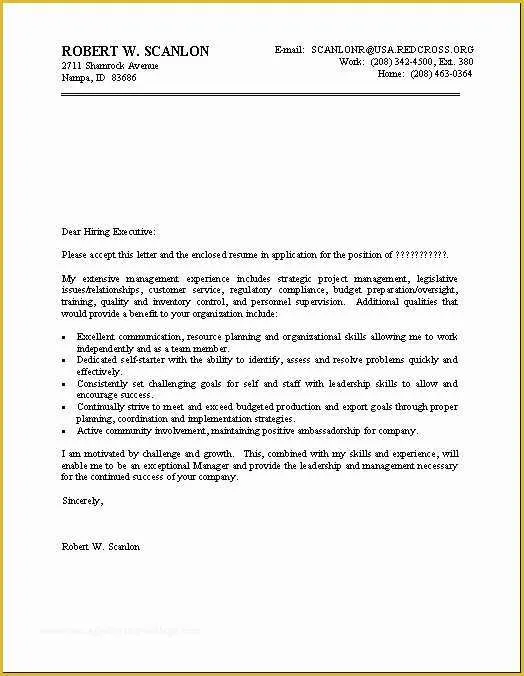
Your cover letter should focus on your skills, experience, and qualifications that are relevant to the specific job. Avoid including information that is not directly related to the position or the company. Do not rehash your entire resume; instead, highlight the most relevant aspects of your background. Avoid sharing personal information that is not relevant to the job. Don’t include details about hobbies, interests, or experiences that are not related to the role. Stay focused on your professional qualifications and how they align with the job requirements. Keep your cover letter concise and to the point, ensuring that every sentence adds value. Tailor your letter to the specific job description, highlighting the skills and experience that are most relevant. Avoid including irrelevant information. Make sure every sentence demonstrates your suitability for the position.
